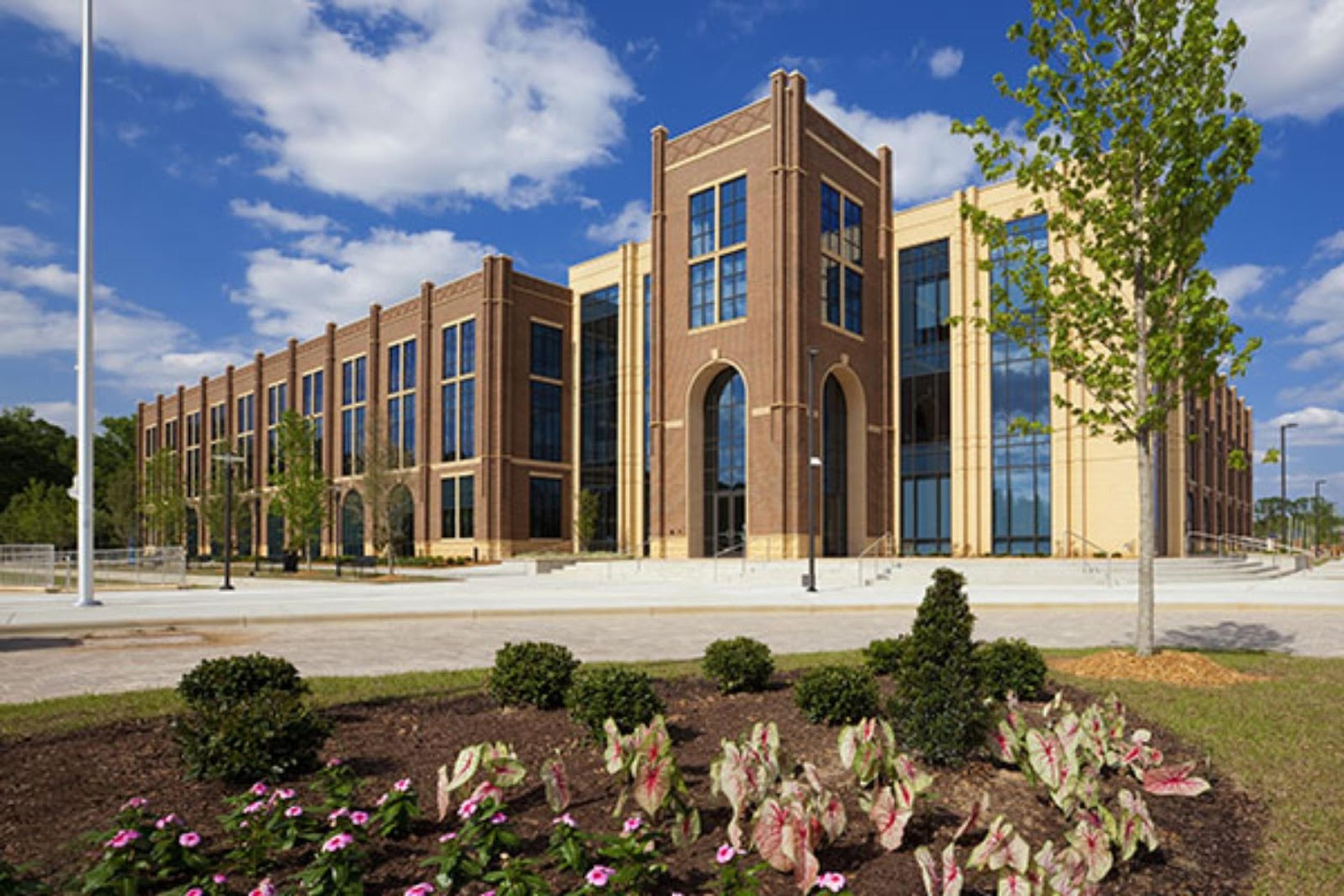Medical Schools in Alabama: A Comprehensive Guide
Are you considering pursuing a career in medicine in Alabama? Look no further than our comprehensive guide to medical schools in the state.
Posted March 6, 2025

Table of Contents
If you are planning to pursue a career in medicine, then Alabama can be one of the best places to receive your education. The state is home to several prestigious medical schools that offer quality education to their students. This comprehensive guide outlines everything you need to know about medical schools in Alabama, including their history, types, accreditation, admission process, tuition, curriculum, faculty and research opportunities, clinical rotations, residency programs, career opportunities, student life, and comparison with other states' medical schools.
Introduction: Why Alabama is a Great Place for Medical Education
Alabama has a rich history of medical education, with some of the oldest medical schools in the country located here. The state is also known for its excellent healthcare system, with several top-notch hospitals and medical centers. These provide ample opportunities for students to gain hands-on experience while learning from experienced physicians and other healthcare professionals. Additionally, Alabama's low cost of living and friendly culture make it an attractive location for aspiring doctors to pursue their dreams.
One of the unique aspects of medical education in Alabama is the emphasis on rural healthcare. With a large portion of the state's population living in rural areas, there is a great need for doctors who are trained to work in these settings. Many of the medical schools in Alabama offer programs and rotations that focus specifically on rural healthcare, providing students with the skills and experience they need to make a difference in these communities.
Another advantage of studying medicine in Alabama is the state's commitment to diversity and inclusion. Many of the medical schools here actively recruit students from underrepresented backgrounds, and offer support and resources to help them succeed. This creates a rich and diverse learning environment, where students can learn from each other's experiences and perspectives, and develop the cultural competency skills that are essential for providing quality healthcare to all patients.
History of Medical Education in Alabama
The roots of medical education in Alabama date back to the early nineteenth century, when the state's first medical school was founded. Over the years, more medical schools were established, and today Alabama boasts several premier institutions that are recognized for their contribution to the field of medicine. Some of these schools have a long and illustrious history, while others have emerged more recently to meet the growing demand for healthcare professionals in the state.
One of the most notable medical schools in Alabama is the University of Alabama School of Medicine, which was established in 1859. The school has a rich history of producing highly skilled physicians and researchers who have made significant contributions to the field of medicine. In addition to the University of Alabama School of Medicine, other prominent medical schools in the state include the University of South Alabama College of Medicine, the Edward Via College of Osteopathic Medicine, and the Alabama College of Osteopathic Medicine.
Types of Medical Schools in Alabama
There are two types of medical schools in Alabama: allopathic and osteopathic. Allopathic medical schools offer Doctor of Medicine (MD) programs and are more focused on traditional medicine, while osteopathic medical schools offer Doctor of Osteopathic Medicine (DO) programs and incorporate a holistic approach to healthcare. Both types of schools provide comprehensive training to students and prepare them to become competent and compassionate physicians.
Allopathic medical schools in Alabama include the University of Alabama School of Medicine and the University of South Alabama College of Medicine. These schools have a strong emphasis on research and offer a wide range of specialties for students to choose from. On the other hand, osteopathic medical schools in Alabama include the Alabama College of Osteopathic Medicine and the Edward Via College of Osteopathic Medicine. These schools focus on a more holistic approach to healthcare and place a greater emphasis on preventative medicine.
Regardless of the type of medical school, students in Alabama have access to a variety of clinical experiences and opportunities to work with diverse patient populations. Many medical schools in Alabama also offer programs to help students develop leadership skills and become involved in community service projects. Graduates of these programs are well-prepared to enter residency programs and begin their careers as physicians.
Accreditation and Ranking of Medical Schools in Alabama
All medical schools in Alabama are accredited by the Liaison Committee on Medical Education (LCME) or the Commission on Osteopathic College Accreditation (COCA). These accrediting bodies ensure that the schools meet rigorous standards of quality and are equipped to provide a sound education to their students. Some of the top-ranked medical schools in Alabama include the University of Alabama School of Medicine, the Edward Via College of Osteopathic Medicine, and the Alabama College of Osteopathic Medicine.
In addition to accreditation and ranking, medical schools in Alabama offer a variety of programs and specializations to their students. For example, the University of South Alabama College of Medicine offers a unique program in rural medicine, which prepares students to work in underserved areas. The Alabama College of Osteopathic Medicine offers a program in sports medicine, which focuses on the diagnosis and treatment of sports-related injuries.
Furthermore, medical schools in Alabama are actively involved in research and innovation. The University of Alabama School of Medicine, for instance, has a strong research program in cancer, cardiovascular disease, and neuroscience. The Edward Via College of Osteopathic Medicine has a research center that focuses on improving healthcare in rural areas. These research initiatives not only benefit the medical community but also contribute to the overall advancement of healthcare in Alabama and beyond.
Admission Process to Medical Schools in Alabama
The admission process to medical schools in Alabama is highly competitive, with a limited number of seats available each year. Students must have a strong academic record, impressive extracurricular activities, and a compelling personal statement to be considered for admission. Additionally, they must pass the Medical College Admission Test (MCAT) and go through a rigorous interview process.
It is important for prospective medical students to research and understand the specific requirements and expectations of each medical school in Alabama. Some schools may place more emphasis on certain aspects of the application, such as research experience or community service. It is also recommended that students apply to multiple schools to increase their chances of acceptance. The application process can be lengthy and stressful, but with dedication and hard work, students can achieve their goal of becoming a medical professional in Alabama.
Tuition and Financial Aid for Medical Schools in Alabama
Medical school tuition in Alabama can vary depending on the institution, but on average, it can cost anywhere between $20,000 to $50,000 per year. However, eligible students can avail of several financial aid options, such as scholarships, grants, and loans, to help cover their educational expenses.
It is important to note that financial aid options may have specific eligibility requirements and deadlines, so it is recommended that students research and apply for aid as early as possible. Additionally, some medical schools in Alabama offer their own scholarships and financial assistance programs, so students should also check with their respective institutions for more information.
Curriculum and Course Requirements for Medical Schools in Alabama
The curriculum and course requirements of medical schools in Alabama are designed to provide students with a comprehensive understanding of basic and clinical sciences. Students undergo rigorous training in subjects such as anatomy, physiology, pharmacology, biochemistry, and pathology. They also receive specialized training in areas like internal medicine, surgery, pediatrics, psychiatry, and obstetrics and gynecology.
Additionally, medical schools in Alabama also emphasize the importance of hands-on clinical experience. Students are required to complete clinical rotations in various medical specialties, where they work alongside experienced physicians and healthcare professionals. These rotations provide students with the opportunity to apply their knowledge in real-world settings and develop their clinical skills. Medical schools in Alabama also offer research opportunities for students to engage in scientific inquiry and contribute to the advancement of medical knowledge.
Faculty and Research Opportunities at Medical Schools in Alabama
Medical schools in Alabama have world-renowned faculty members who are experts in their respective fields. They provide supervision and guidance to students during their clinical rotations and residency programs. Additionally, students have ample opportunities to participate in research projects and gain exposure to cutting-edge medical technologies and innovations.
Clinical Rotations and Residency Programs in Alabama
Clinical rotations and residency programs are an integral part of medical education in Alabama. During these programs, students get hands-on experience in real-world clinical settings, and work closely with physicians and other healthcare professionals. These programs help prepare students to become competent and compassionate physicians and provide them with a means of transitioning from student to practitioner.
Career Opportunities for Graduates of Medical Schools in Alabama
Graduates of medical schools in Alabama have numerous career opportunities available to them. In addition to establishing their own practices, they can work in hospitals, clinics, or research facilities. They can also pursue careers in areas such as medical education, public health, and healthcare administration. Alabama's growing population and aging demographics make it an attractive location for physicians to begin their careers.
Student Life at Medical Schools in Alabama
Medical school can be challenging and demanding, but students in Alabama have access to a supportive and engaging community. They can participate in student organizations, social clubs, and recreational activities, and take advantage of the state's warm climate and outdoor recreation opportunities.
Comparison with Other States' Medical Schools
Although medical schools in Alabama are esteemed for their quality education and excellent training, they are not the only option available to students. Other states have top-ranked medical schools that offer comparable education and different specializations. Students should research their options and carefully consider their personal and professional goals before making a decision about their medical education.
Future Outlook of Medical Education in Alabama
Medical education in Alabama has a bright future, as the state continues to invest in healthcare and medical research. New medical schools are also being established to meet the growing demand for healthcare professionals in the region. Alabama is poised to continue its long tradition of providing quality medical education to aspiring physicians and contributing to the advancement of healthcare and medicine in the country.
Conclusion: Is a Medical School Education in Alabama Right for You?
If you are passionate about medicine and want to receive a comprehensive education that prepares you for a rewarding career, then a medical school education in Alabama may be the right choice for you. The state's highly respected medical schools, experienced faculty, rigorous curriculum, and ample clinical training opportunities make it an excellent destination for aspiring physicians. However, it is important to carefully consider your educational goals, personal preferences, and financial situation before embarking on this journey.












